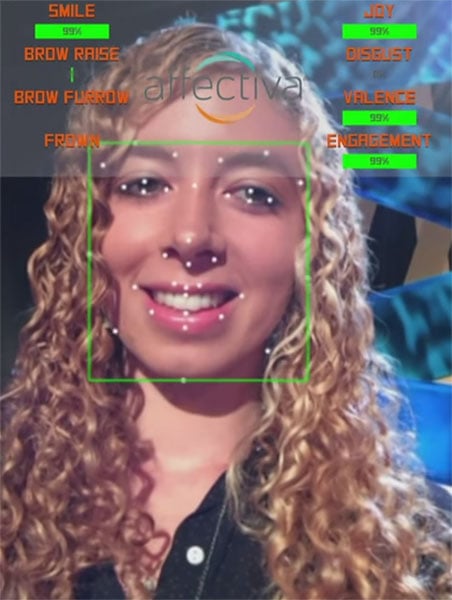Dawn Of The Emotionally Aware App, Possible Future ‘Emotion Chip’ To Herald Devices That Respond To Feelings
Computer learning has helped a multitude of different technologies become a reality, with one in particular being emotion-detection. Most examples I've seen in the past have been simple, though, such as being able to detect a smile or a frown - something that shouldn't be that challenging. But with today's super-fast computers, and even mobile devices, we're now able to detect emotion with far greater granularity.
To see an example, we just have to turn to facial recognition expert Rana el Kaliouby. She gave a talk at TED last month to highlight just how accurate emotion-detection has become, and depending on your perspective, the result is either amazing, or downright scary. I highly encourage checking the video out.
To accurately detect someone's emotion, Rana's software bases things on eight different factors, which includes whether or not the person is frowning, showing disgust, engaged, raising their eyebrows, and so forth. An ultimate diagnosis is based on a mixture of these eight values. You can see a real-world example below:
Through research with this software, a couple of interesting factoids are revealed. In the United States, women are 40% more likely to smile. In France, that number becomes 25%. In the UK? Interestingly enough, men and women there apparently smile just as often.
It goes without saying that this is pretty cool technology, but you're probably wondering why we need it. A couple of examples are given, with a great one being the fact that people with limited vision could have this software enabled in their glasses to help them understand the emotions of the person they're talking to - an important aspect of having normal conversation. Another example is with an online tutor - if the software detects that most people are frustrated at a particular question, then that could provide good information to those who craft the test.
According to Rana, the uses are truly endless, and because of that, her company Affectiva calls on other developers to adopt the technology to begin crafting some unique applications. Given how accurate the technology appears to be, it seems likely that we'll be seeing more of it in the future. Don't frown about it - your PC will see you.



